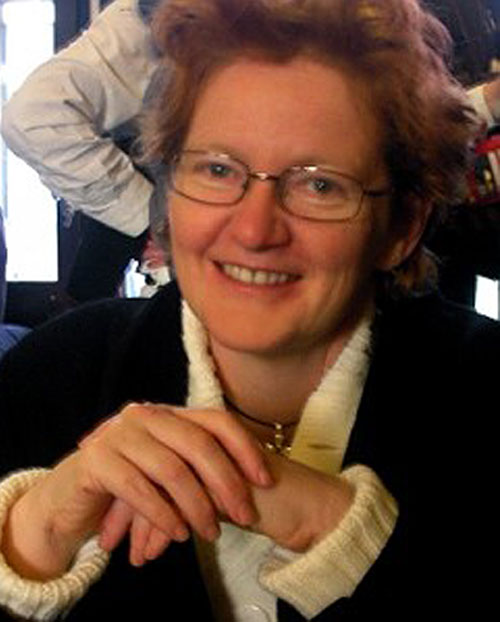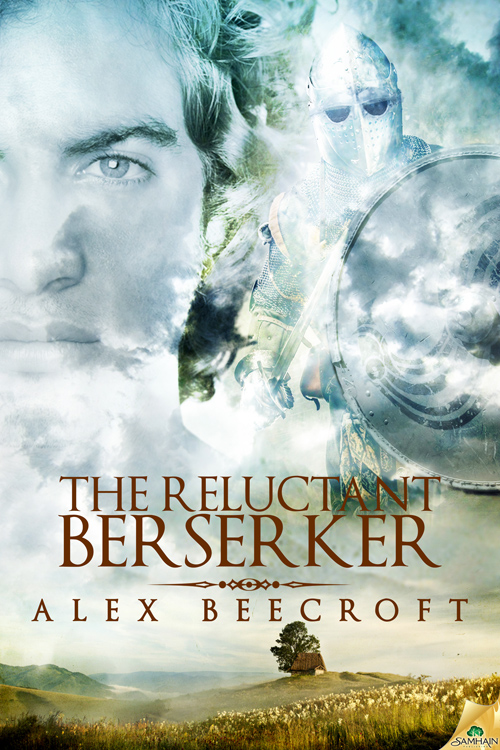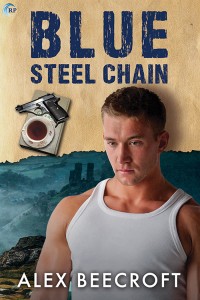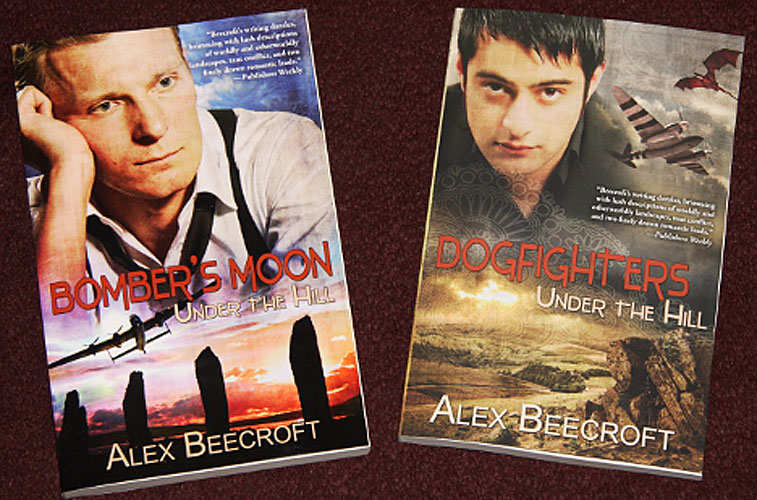Writing, // April 28, 2015
Alex Beecroft – WRITER
Interview with writer Alex Beecroft —
1. Who are you and what do you do?
I’m Alex Beecroft, and I write Queer fiction. I like to say that if you made a Venn diagram of genres, containing fantasy, historical, mystery and queer romance, my writing occupies the space in the middle where they all intersect. I am published in the field of m/m romance, and looking for publishers for my non-romantic fantasies. Just to mix it up a bit, I’ve just finished a m/f space opera romance, though as the heroine spends some of the book having been unwillingly sex-changed and my hero is not one whit put off by this, I think it still comes under the queer banner.
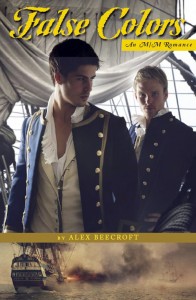
“False Colors” COVER
2. Why writing?
I can’t imagine not writing. It’s what I do to drain off the mental pressure. It’s the one thing I do in a day that makes me sure I have justified my existence. Naturally, if I don’t write, I get very depressed.
3. What is your earliest memory of wanting to be an writer?
I don’t actually remember a time when I suddenly decided I wanted to be a writer. I remember playing lets pretend with my little friends at age eight and being annoyed that when they pretended to be characters from Lord of the Rings they used to do nothing more than repeat the dialog verbatim. I wanted to make new things up that would nevertheless be the sorts of things that those characters would say. That fed naturally into creative writing lessons at school, and I never really stopped telling stories until I wrote my first novel at eighteen. By that time, of course, I knew I loved to write, but I believed that I couldn’t be ‘a writer’ because you had to get a proper job to feed yourself with. I guess it was having my first book published which finally clued me in to the fact that I could be a writer first and other things after.
4. What are your favorite subject(s) and style(s)?
I like everything? I mean, I’ve been writing now all my life, and published since 2007, so if I had one or two easily recognised subjects, I would probably have exhausted them by now. I suppose I’m most interested in love and the structures of society, and what it’s like living on the margins of what society deems acceptable. I’m asexual myself, so sometimes I don’t feel entirely human, and all human society looks weird and fascinating to me as a result, as does the ideas of how to fit in, and whether it could be made different, better.
5. How do you work and approach your subject?
I spend a week elaborating an idea into a plot plan in which every scene gets a paragraph of description to tell me what’s going to happen. Then I write a first draft at a rate of approximately a scene a day. My scenes are approximately 2,000 words long, so I can more or less calculate the size of the book I want, divide by the size of a scene and come up with how many scenes I’m going to need. If I’m writing an 80, 000 word book, it will take me approximately forty days, for example. Then I let the first draft rest for somewhere between two weeks to a month, so I can come back to it with fresh eyes, and then I’ll do a second draft in which I identify and fill the plot holes, work on the characterisation and pacing and see if the plot can be tightened to be more exciting, or expanded to make more sense. (Normally I need to expand.) Then I let it rest again before coming back to do a third draft and polish where I focus on making the language as powerful and beautiful as I can.
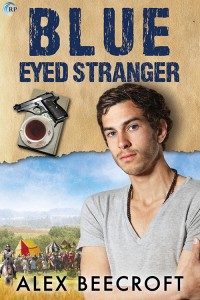
“Blue Eyed Stranger” COVER
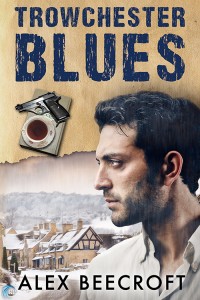
“Trowchester Blues” COVER
6. What are your favorite written works, writers?
I’ve loved J.R.R. Tolkien since the aforementioned games of ‘let’s pretend.’ It’s probably thanks to Tolkien that I studied Anglo Saxon Art and Archaeology at university and became a Christian. (Those two things are more connected than they sound. I had to read a lot of Saxon poetry for the degree, and one of them was a poem specifically designed to convert people to Christianity. It worked. High five to you, Cynewulf. Still saving the unbeliever from one thousand years in the past.)
That was an aside, wasn’t it? I also love Master and Commander by Patrick O’Brian – and in fact the entirety of the Aubrey/Maturin series. Also The Left Hand of Darkness by Ursula LeGuin.
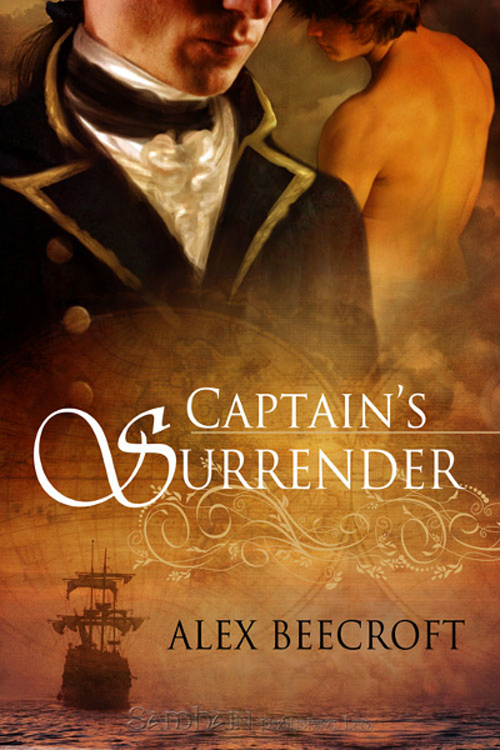
“Captain’s Surrender” COVER
7. What are the best responses you have had to your work?
I had an amazing couple of emails from a man who had used my Captain’s Surrender to reassure his friend, who was coming to the realization that he was gay, that this didn’t mean he was also damned. My writing saved a man from despair and from losing his faith. I can’t imagine anything better than that.
8. What do you like about your work?
I like the fact that it’s about the things I’m interested in. So few books are. The combination of an asexual, queer positive gaze with Christianity is an unfortunately rare one, and when I want to see that coupled with a decent amount of explosions and dragons, I mostly have to do it myself.
9. What advice would you give to other writers?
Finish what you start. Try not to judge yourself against other people. Tell the stories you want to tell, because it’s a long hard slog and you’re very unlikely to hit the big time even if you chase after the fad of the day. Don’t do it if it isn’t what you love.
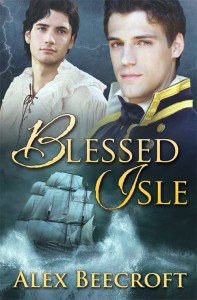
“Blessed Isle” COVER
10. Where do you see yourself in 5-10 years?
I really hope by then I’ll have one of my non-romances published. I like romance and can’t ever see myself stopping writing that, but it would be good to be able to tell the other stories too, and hope that they would be read. But if it doesn’t happen, I see myself doing more of the same – writing, publishing, writing some more.
LINKS —
Website: http://alexbeecroft.com
Facebook: https://www.facebook.com/AlexBeecroftAuthor/timeline



